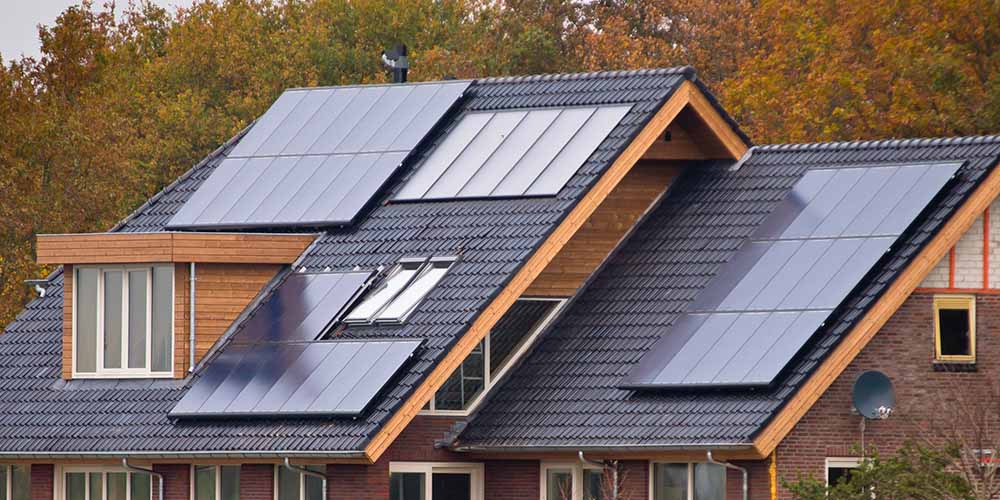Many property owners continue to struggle with the rising costs of energy bills. Energy consumption takes many different forms, of course, but a major expense comes from the simple need to heat your water.
Can solar panels help to cut those water heating costs – and, if so, how?
What is solar hot water?
Just as the term suggests, solar hot water makes use of the solar energy from the sun to heat water. It can do this in one of two ways:
- solar thermal panels are installed to directly employ energy from the sun for hot water and heating; and
- solar photovoltaic (PV) panels that convert energy from the sun into electricity – that can be used for heating and hot water.
Either way, it is the solar energy from the sun that is used to heat your water but for this article, we are looking at solar thermal panels only
What are the benefits of solar water healing?
The immediate, obvious benefit of solar water heating comes from the fact that you pay nothing for the sun to shine – solar energy is a free resource.
But that’s not the only saving Landlord Today reminded us on the 13th of April 2024 – harness the sun’s rays and you’ll not only save money but also reduce your carbon footprint. So, you’ll be doing the world a favour by switching to a thoroughly sustainable heat source while also saving a fair packet in your pocket.
Not only is the sun free, but you’ll also be protecting yourself against future price rises and potential fuel shortages. You might consider it priceless to safeguard your future energy needs in this way.
What are the cost savings?
Of course, there will be an initial outlay to get the panels installed, so this will need to be factored in, overall. But that aside, the cost savings will be variable. These include your geographical location (how many hours of sunshine you can typically expect), the volume of hot water you use, how efficiently your solar heating system works, the cost of the fuel you would otherwise consume (electricity, oil, or natural gas), and your options for finance and any financial incentives currently available.
Green energy consultants GreenMatch estimate that these savings could represent up to £475 a year for the average consumer.
How do they work?
Solar thermal systems – or solar water heating systems – take the energy directly from the sun to heat the water you can then store in a thermal store or hot water cylinder.
The system relies on “solar collectors” which are tubes or panels used to gather the energy from the sun. The tubes are filled with a mixture of glycol and water, enabling the solar collectors to convert the infrared spectrum of visible light into heat. The water and glycol mixture is then pumped around a circuit that includes the hot water cylinder.
Given the UK climate, the amount of solar energy available to you varies throughout the year. The Energy Saving Trust explains that the typical solar thermal system installed in most residential situations will not meet all your hot water needs the whole year around. Instead, you will need to back up the solar supply with a conventional electric immersion heater or continue to rely on a central heating boiler.
The installed system can be expected to meet your hot water needs for taking a shower, bath, or running the hot taps.
What if I already have solar panels?
If you already have solar panels, Landlord Today suggests that you consider installing an Immersion Power Diverter so that any additional energy you are generating can go towards heating the hot water cylinder.
There is an initial installation cost, of course, but Landlord Today estimates that your savings on energy bills could effectively cover that cost within just two years.
Please note, this blog is based on current research and any figures and information supplied are based on this research as of May 2024. If you are interested in solar panels, please consult a professional.








